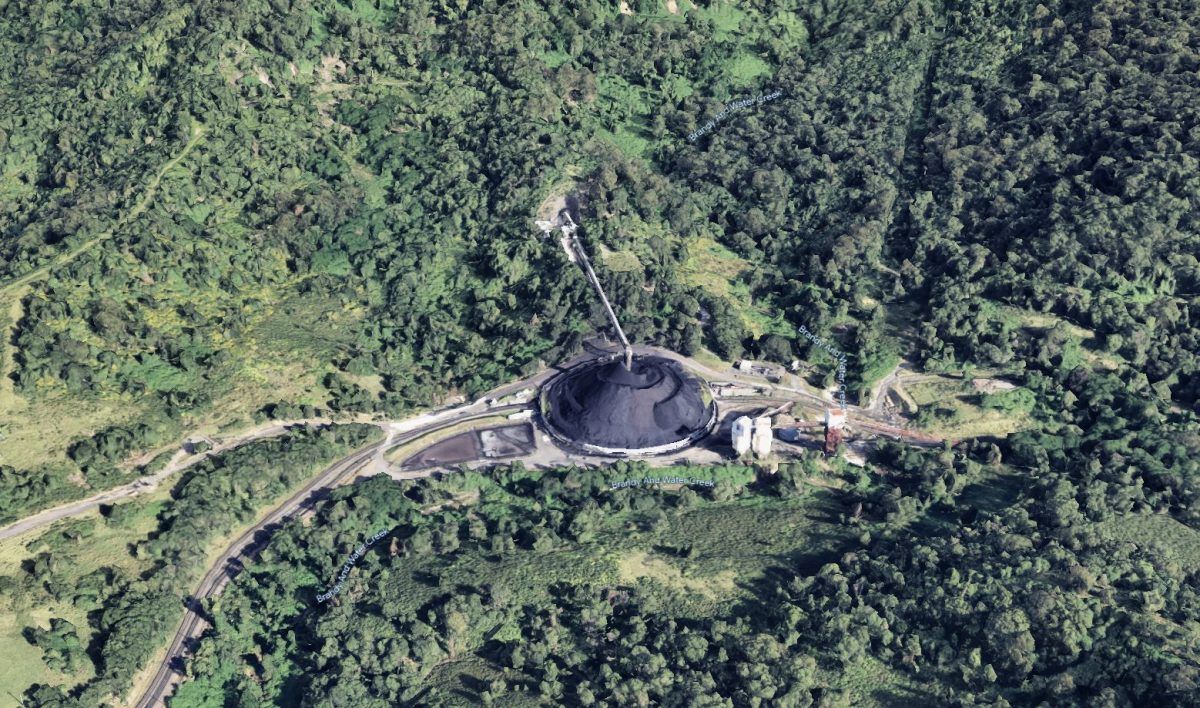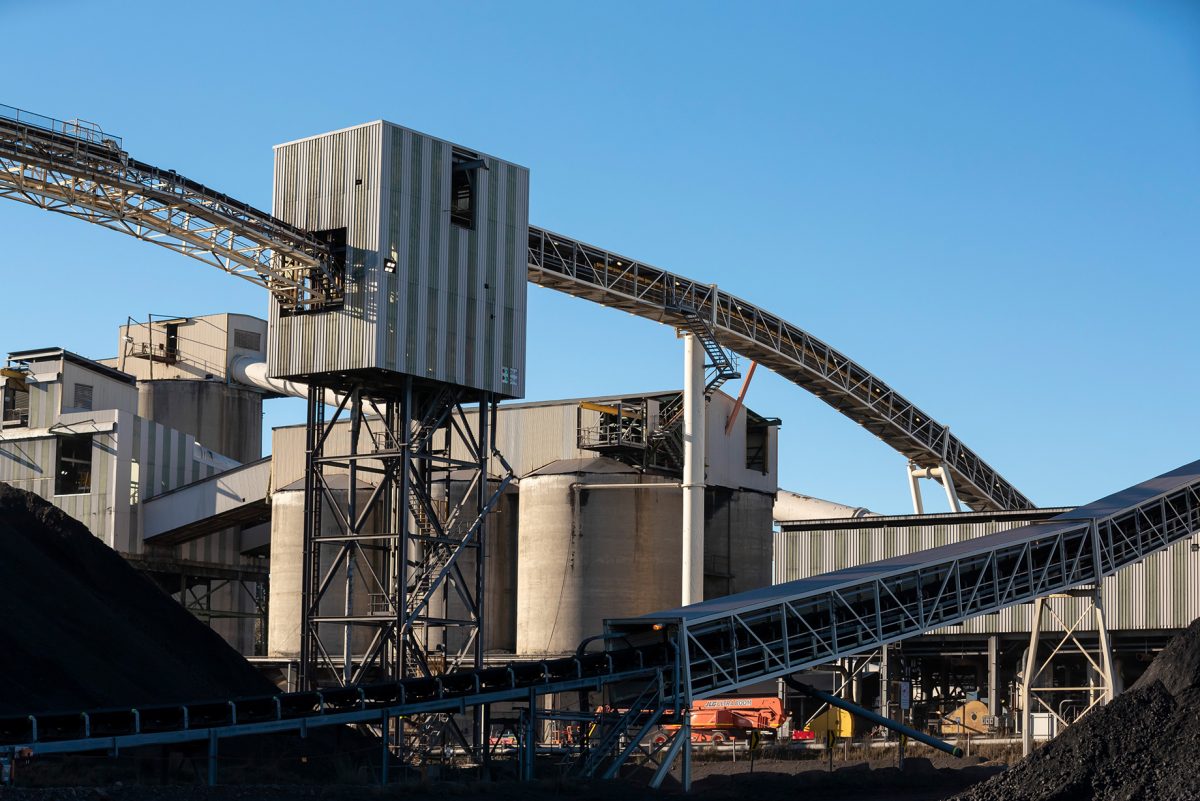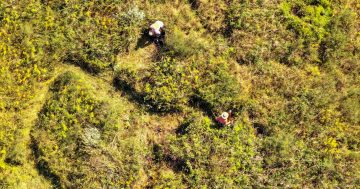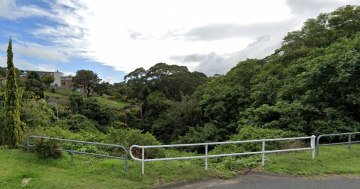
South32 IMC’s Dendrobium mine at Mt Kembla. Photo: NRAR.
South32 Illawarra Metallurgical Coal (IMC) has agreed to pay out almost $3 million for a waterway restoration project after its Dendrobium mine operated for five years without a NSW water licence.
It’s the largest enforcement to be handed down by the Natural Resources Access Regulator (NRAR) since the independent agency started operating in 2017.
The Mt Kembla mine was approved several years before the requirement existed to hold a water access licence for surface water in the catchment. However, when the requirement came into effect, there was no licence for surface water available to the mine.
Changes to the licensing framework now allow the mine to obtain a licence and water allocations to account for surface water taken. IMC applied for a licence in March 2023, which is still under consideration.
Chief Regulatory Officer Grant Barnes said the landmark agreement wouldn’t prevent NRAR from taking any enforcement action in the future and NRAR would continue to monitor compliance at the mine.
“Although it was not possible for the mine to apply for the surface water access licence until recently, the alleged breaches are very serious and concern significant quantities of water in an ecologically sensitive area of Sydney’s drinking water catchment,” Mr Barnes said.
A 2019 report prepared by the Independent Expert Panel for mining in the Sydney catchment found that it was “plausible” that surface water and seepage from reservoirs was being diverted into the mine workings.
South32 has agreed to an enforceable undertaking (EU) to provide $2.8 million for a community project related to wetland or waterway restoration.
In August last year, South32 announced it would not proceed with a controversial plan to extend the life of the Dendrobium mine. The company had planned to extract an additional 78 million tonnes of metallurgical coal but instead decided to look to extend the mine life within approved domains.
A company spokesperson said that since 2014, South32 IMC had paid $5.6 million to account for the passive take of water resulting from underground activities at its Dendrobium mine.
“We understand that water is a critical resource and recognise our obligation to pay for all water used by our operations in the same manner all water users do,” the spokesperson said.
“In lieu of an approved surface water licensing regime, NRAR engaged with us in 2019 in respect of past surface water usage at Dendrobium mine.
“We have cooperated with NRAR’s request and following discussions with NRAR, we have committed to an enforceable undertaking which will involve providing funding for a community project. Over the coming months we will work collaboratively with NRAR and other stakeholders to develop a suitable water related community project.”

Metallurgical coal mined at South32 IMC’s Dendrobium mine is used to make steel. Photo: South32.
Mr Barnes said enforceable undertakings were one of the enforcement tools available to NRAR when alleged breaches of NSW water laws occurred.
“Companies sometimes propose an enforceable undertaking to remedy significant breaches of these laws as an alternative to court action,” he said.
“Before we consider accepting a proposed enforceable undertaking, it must contain actions to address the alleged rule breaking and to acknowledge the breach.
“NRAR also considers what happened, how serious it was and whether there is a history of rule breaking.
“In this EU, NRAR considers that we have achieved the most effective outcome for the people of NSW which redresses the alleged breaches that occurred, delivers benefits to the local community, and puts in place much improved processes to better manage water at this mine in the future.
“Compared to other enforcement options, this EU will provide the greatest public benefit and is the most appropriate regulatory outcome in the circumstances.”
South32 IMC must also pay NRAR $70,000 to cover investigation, legal and monitoring costs, with the option to increase these costs after the community project proposal is received.
The company has until the end of September to provide NRAR with its project proposal and must start delivering it within three months of NRAR’s approval.
Under the terms of the agreement, South32 must also consult with local Aboriginal communities and groups connected to the area where the community project will be undertaken.
Just last week, South32 was named as a finalist in the NSW Minerals Council’s Health, Safety, Environment and Community Awards.
The company and engineering firm WSP are finalists in the Environmental Excellence category for their investigation into the Eloura Fault, which lies beneath the Dendrobium mine. The investigation aimed to understand the fault’s behaviour and potential risks to the water supply.
The award winners will be announced in early August.











